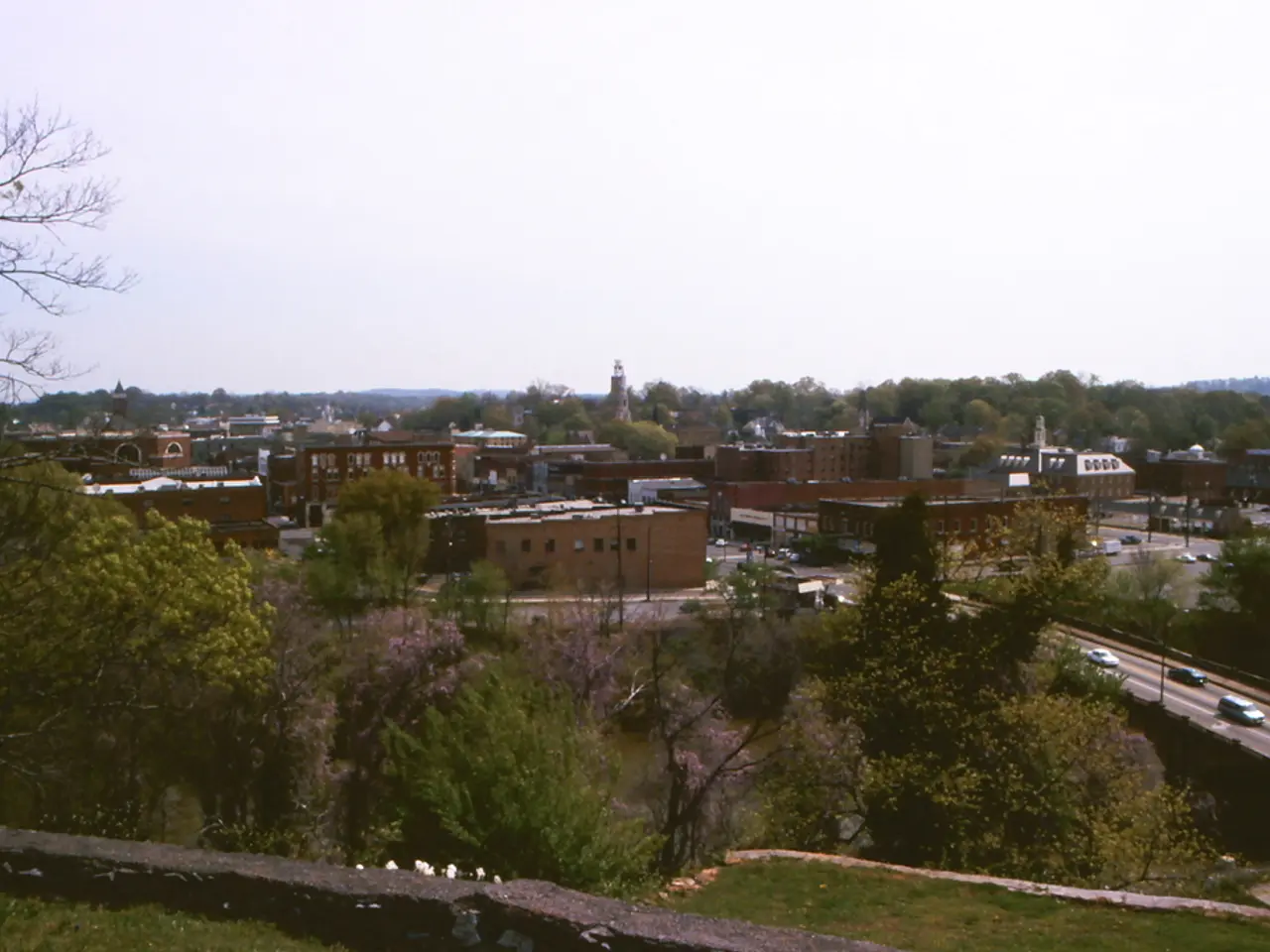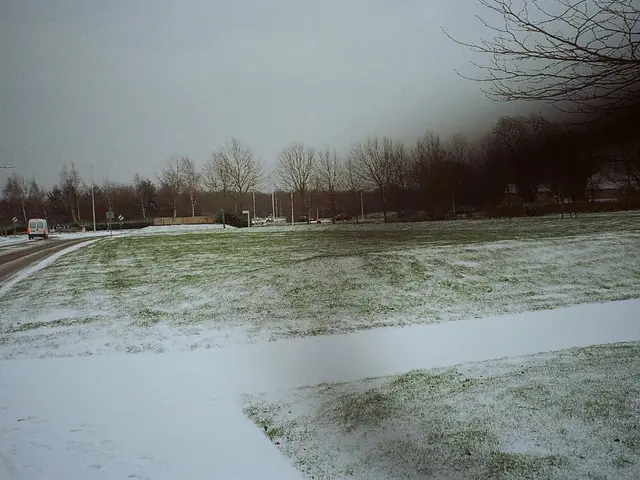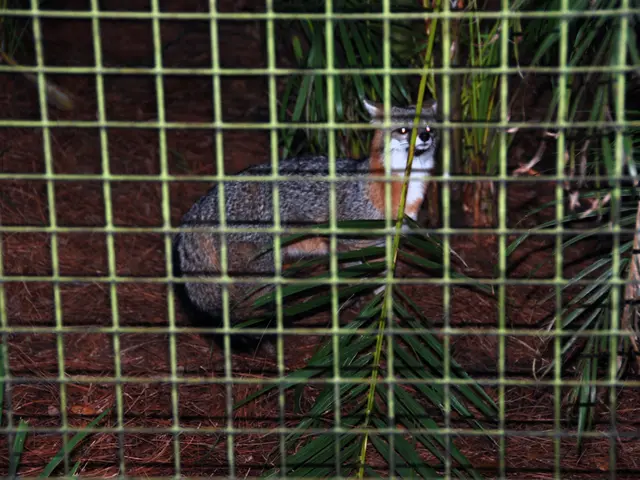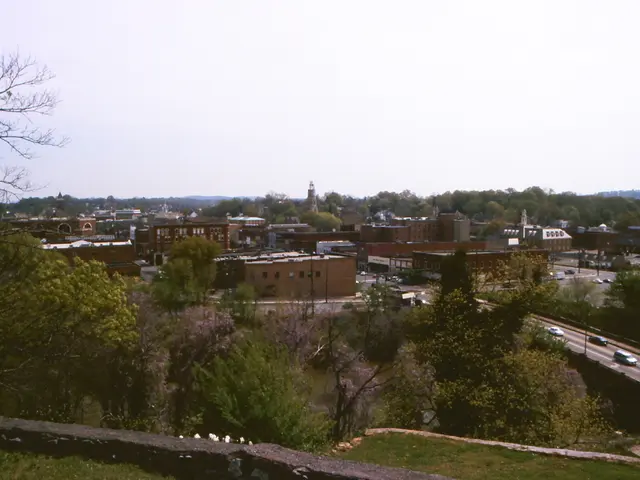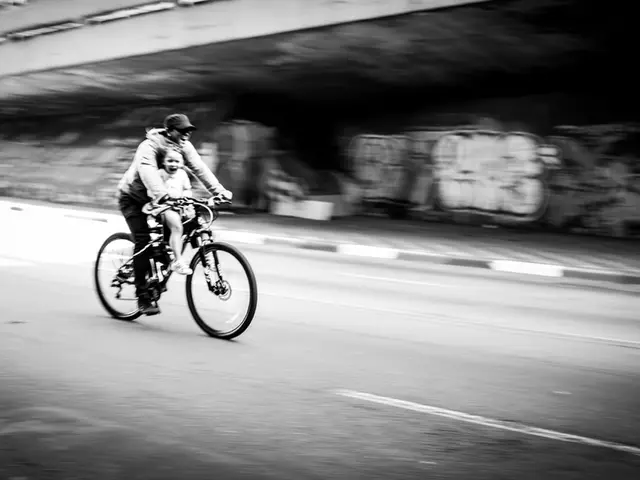Power surge due to escalating population expansion reported by the FWG
In the bustling city of Bergisch Gladbach, the Free Voters' Community (FWG) has announced its flagship project for the next five years: transforming the city into a liveable metropolis, green and sustainable, with a focus on moderate, manageable population growth and rapidly visible successes in eliminating the backlog of renovations.
Led by Rainer Röhr, the FWG aims to be represented in the future city council with more than the current three heads. The community is actively involved in local politics, taking on the role of a swing vote in the city council and fielding candidates for all 26 constituencies.
The FWG's plans for the cityscape encompass a variety of initiatives. They propose creating new housing in connection with adapted quarter designs, unsealing and greening areas, sponsoring green areas, appreciating citizen initiatives, and having a quick intervention team for litter removal and damage repair. To ensure public order, they plan to effectively punish offenses and make public order services more present.
Climate protection is a key priority for the FWG. They advocate for preserving natural wooded, green, and open spaces, stopping land consumption and limiting sealing, concentrating construction on brownfield sites, making forest areas resilient to climate change, consistently and promptly implementing a climate protection concept, advising specialized businesses, promoting energy-efficient renovation of urban buildings, and expanding district heating networks. However, they have yet to provide an answer to the question of how climate protection can be advanced faster.
Traffic problems will be addressed through the prompt and pragmatic implementation of the road construction program, strengthening infrastructure, separating foot, bike, and car traffic, and strengthening the accessibility of supply centers. The FWG also plans to retain and quickly renovate sports facilities to enable clubs to maintain their offers.
In terms of housing affordability, the FWG proposes simplifying building standards, changing the NRW building code, ensuring demand-oriented norms, promoting cooperative housing, and strengthening RBS. They also plan to build or rent cost-effective accommodations that can also serve as affordable housing for all, while avoiding accommodations in sports halls.
To secure offers for youth, the FWG sees establishing a youth parliament or council as a viable solution. They also aim to eliminate personnel problems in OGS/Kitas by easing entry for supporting and profiling forces, such as musicians and artists, and establishing a substitute pool for personnel shortages.
The FWG's approach to digitalization includes expanding and accelerating digitization, increasing citizen involvement in change processes, and improving communication with citizens. However, they have not provided an answer regarding how they want to defend the green character of the city.
For specific and up-to-date details on FWG Bergisch Gladbach’s climate policies, you might check their official statements or local council communications directly, as their strategies can evolve with ongoing policy discussions. The FWG's plans for climate protection, housing, traffic, and more are all aimed at creating a city that is not only liveable but also sustainable and community-driven.
Read also:
- United States tariffs pose a threat to India, necessitating the recruitment of adept negotiators or strategists, similar to those who had influenced Trump's decisions.
- Weekly happenings in the German Federal Parliament (Bundestag)
- Southwest region's most popular posts, accompanied by an inquiry:
- Discussion between Putin and Trump in Alaska could potentially overshadow Ukraine's concerns
